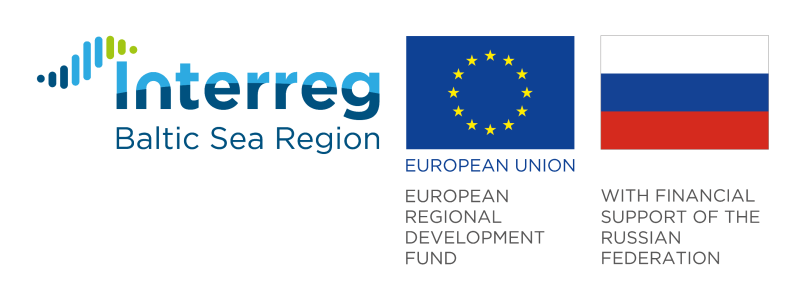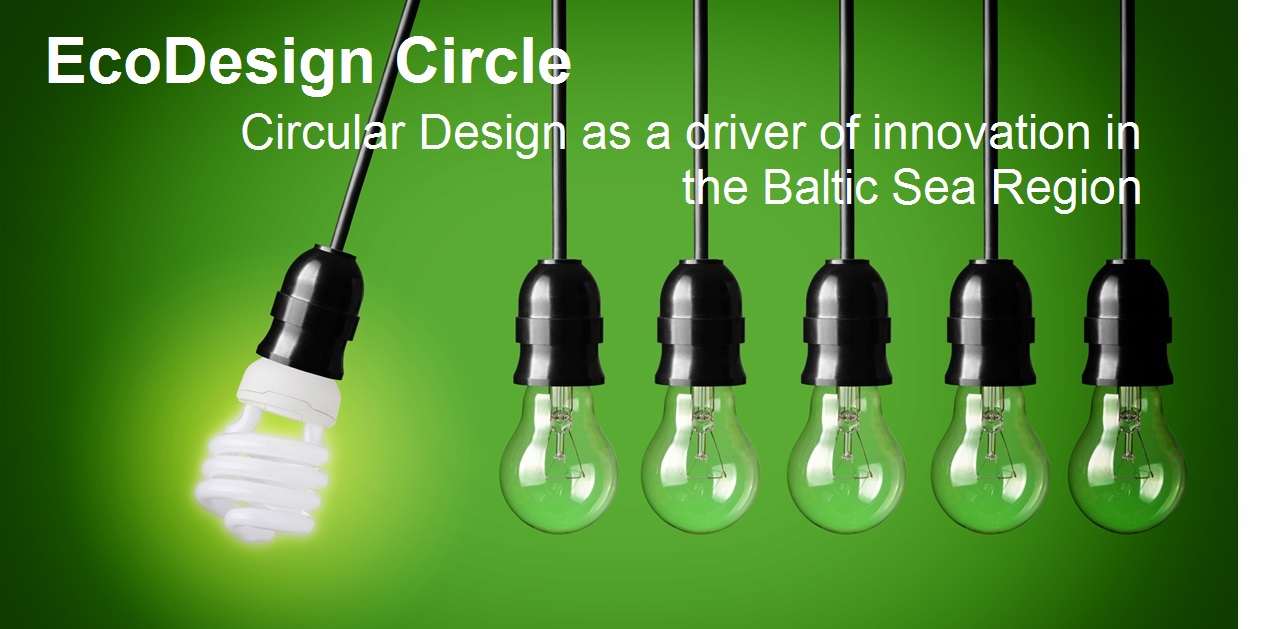Medina Art is a relatively small marketing and business consulting company in St. Petersburg and has been an active partner of "EcoDesign Circle 4.0" since 2019. What began with the first Circular Design workshops in St. Petersburg has meanwhile triggered a "circular wave" that is sweeping across companies, organisations and politicians in Russia from the Baltic Sea to Kamchatka.
We interviewed Marina Lebedeva, CEO of Medina Art, marketing and business consultancy in St. Petersburg, Russia.
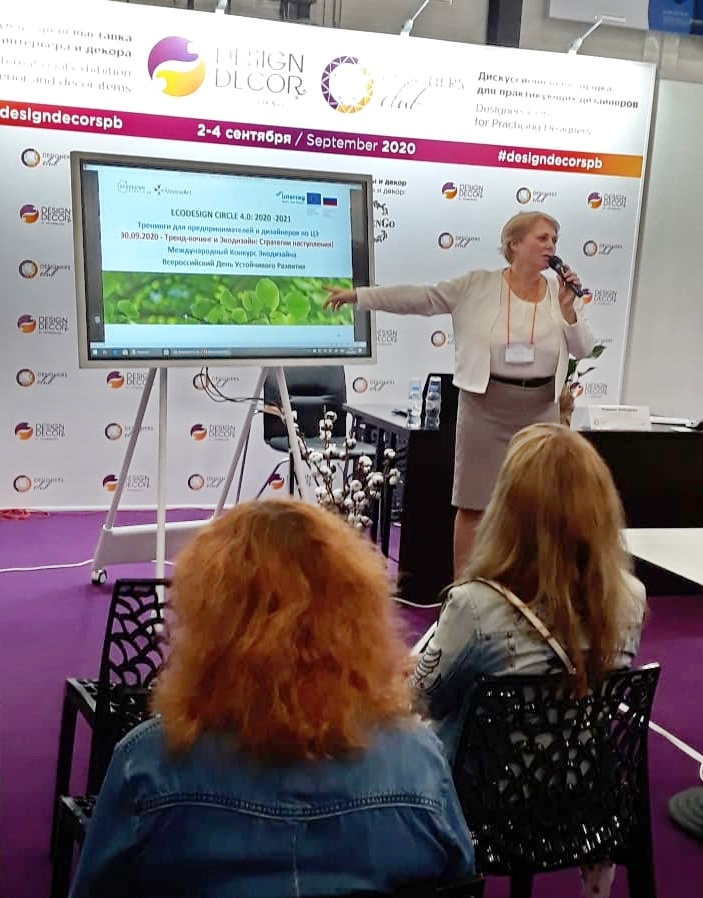
Marina Lebedeva introduces the importance of circular design in St. Petersburg | © Elena Gontarenko
Dear Marina, may you shortly tell us about your professional background?
Yes, it sounds funny because usually when people ask me, what my background is, my answer is “rocket science”. Indeed, my first study was about rocket engines and lasers. After the perestroika I decided that I should have an economic background and I did my MBA in the United States and Russia. One of my favourite subjects was marketing. From that time, I also decided that I wanted to work on international projects in order to learn from other people and cultures and to build new relationships. And I can tell you why, because in Soviet times we were forbidden from doing so. Especially due to my first profession it was impossible to contact foreign people … That's why it is obvious for me to engage in projects such as EcoDesign Circle 4.0.
And what about Medina Art? I decided to found this company in 2007. First of all, my intention was to further engage in the furniture sector. Since 1995 I’ve dealt with furniture and became the founder and the general manager of the “Union of Enterprises and Employees of the Furniture and Woodworking Industry in North-West Russia”. Since then, I also started to think about green design. But in a different way than today… those were the first steps in this direction and we did not fully understand how to go about it yet. It was my strong feeling that something should be done. But it was not the right time to implement it and we were not successful in cross-border projects. Now with EcoDesign Circle 4.0, the time has come!
Can you describe Medina Art, how you work, in three words?
First of all, internationalisation. We are a company that works with other countries, and we don't want to think and act only within our borders.
Second: holistic approaches. We understand the whole world as one system. We think about all issues as a complex system and try to solve not only a single problem but all of them to achieve the needed result.
And thirdly project-orientation. We are oriented to results, but not to processes. This is our edge over other companies and the reason we don't have a big team. When we start a project, we integrate experts from different professional areas necessary to achieve the goal. This way, we reach the goal in shorter time with less budget than others but still to a high quality. We have a very strong community and a pool of experts. And we’re good at inspiring them to join each cooperation. It is a partnership and often a friendship, too. Maybe this is the fourth characteristic for us: working with our hearts!
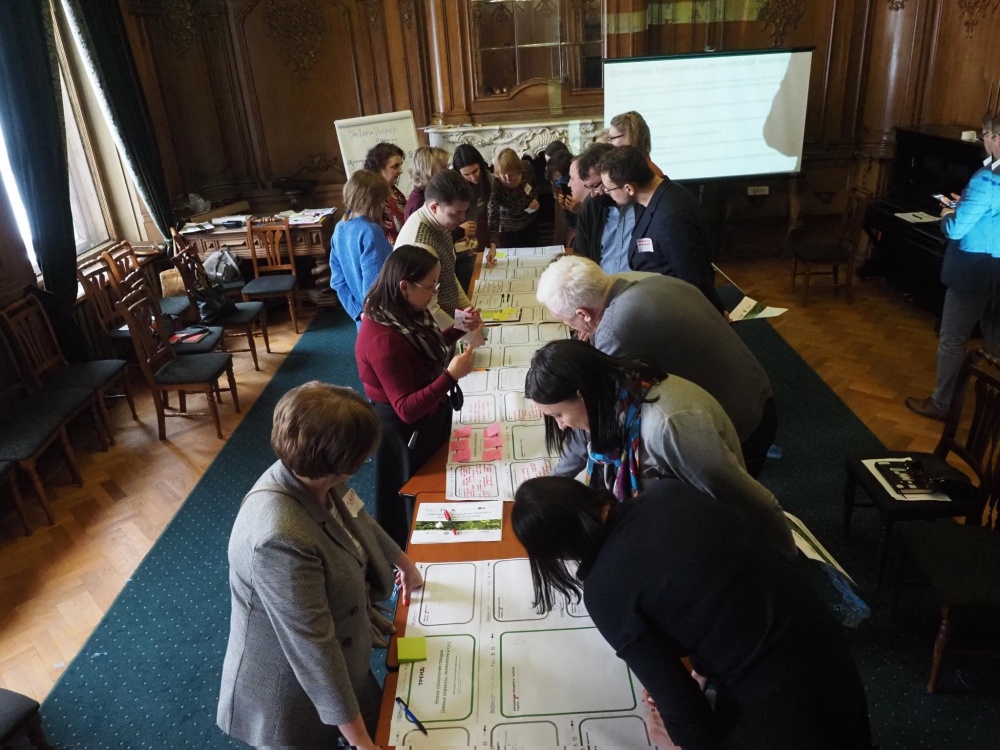
Train the Trainers Session for the EcoDesign Sprint in St. Petersburg (March 2021) © Elena Gontarenko
Why did you join the Ecodesign Circle 4.0 project and what motivated you to be part of it?
We were recommended by Elena Belova from the Leontief Centre in Russia - an international centre for social and economic research in St. Petersburg. She heard about the project and she knew about our activities in the ecodesign area and sustainable development. But maybe we were also brought together because someone at a higher sphere listened to our ideas, and decided, it is a good possibility if these people cooperate and change something for the better. It was the same chemistry between us and the lead partner of EcoDesign Circle 4.0.
With regards to our motivation: to speak pragmatically, the project sounded like a very good idea. I found it very interesting and a step in the right direction. I didn't understand everything at the beginning. We had to wait until we conducted our first EcoDesign Sprint and now it is very easy for us to explain to our Russian network what it means. I think it is a great way to make real changes. And what‘s most important: the Sprint is a strategic tool.
And as a last point: For me it is comforting to work with people from other countries around the Baltic and to develop relationships and friendships.
What are your experiences with the EcoDesign Sprint’s perception in Russia?
We piloted the EcoDesign Sprint in Russia in a furniture factory in Saint Petersburg: One of the challenges was to integrate the company’s top managers for two workshop days, the deputy director and the chief designer. This was not easy at all and we succeeded as the owner decided about their participation.
Just recently I had an interview with the key players of the company for a video and one of the questions I asked them was: tell me in one word what you achieved from the EcoDesign Sprint. And the answer was… awareness. Awareness for the topic of circularity. When I came to the factory for an interview, they started researching alternative eco-materials suitable for furniture. They showed me boxes with interesting samples and some panels made from hay.
And we have the same result with our “Train the trainers workshops” in which we taught the methodology of the EcoDesign Sprint. Participants said they got hooked on the idea of ecodesign and circularity. They started to think about everything differently. They posted on Facebook that we changed their outlook. This was the main result.
When you look into the future … how do you think can you reach other companies and spread the approach and the “circular thinking”?
First of all: we use all possibilities to show these tools to our business partners, producers, authorities and designers. We prepare promotional materials for companies because the next step should be at the commercial level. For instance, we made a short film and also started a promotion campaign on the internet to inspire and motivate other companies. We cooperated with the Association of Furniture and Woodworking Enterprises of Russia and presented the ecodesign approach and our results during an important annual meeting with Russia’s leading furniture companies.
And we used several more decisive chances to raise interest in our offers like a master class for Moscow Chamber of Commerce members. After my presentations I often get calls from producers who are interested in switching to a circular business model. … Other opportunities which might open up not only the Russian market, but also international ones. We are always busy.
What role does Circular Economy play in Russia’s politics?
I didn't know how it happened, but our government decided to go the circular economy way. Russia’s Ministry of Industrial Development and Trade promotes these ideas and they started to elaborate some concrete proposals. We don’t talk about the distant future yet but instead focus on the first steps towards a circular economy.
And from our side we also cooperate with local authorities in St. Petersburg and the Leningrad region to promote ideas about a circular economy.
Shortly, we work with all levels and they in turn start to discuss and promote this topic.
Another approach is the memorandum we prepared … a memorandum of cooperation in the area of circular economy.
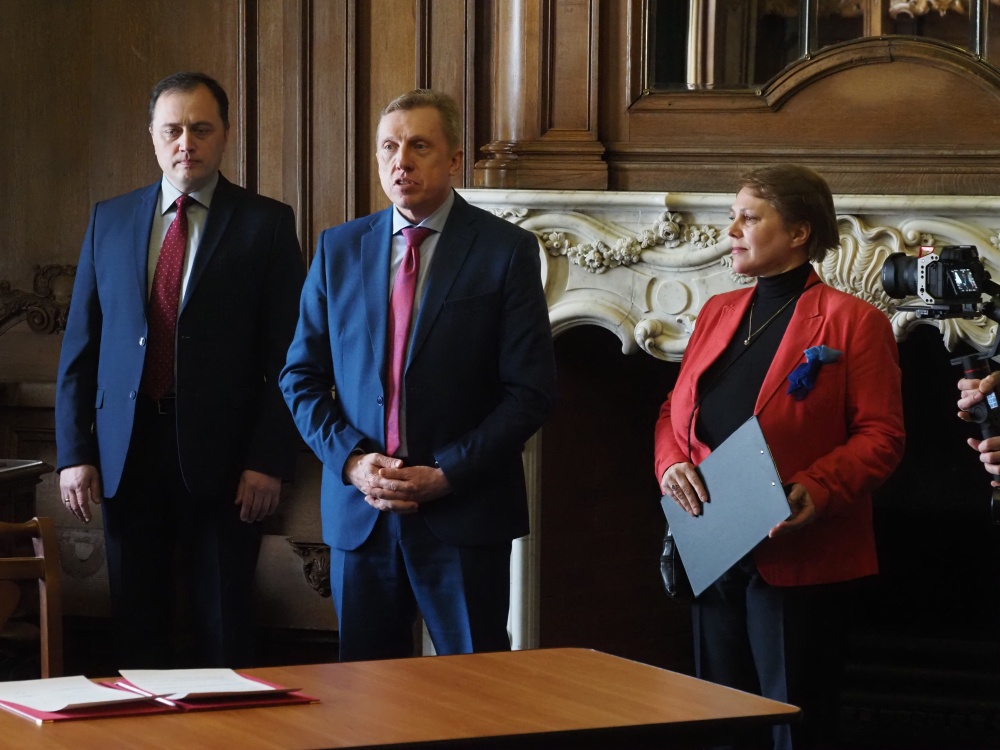 Signing a memorandum of cooperation in the area of circular economy in March 2021 © Elena Gontarenko
Signing a memorandum of cooperation in the area of circular economy in March 2021 © Elena Gontarenko
How did it come to the idea for a memorandum? How was it perceived? And how do you think the paper will be put into practice?
As you know I am a person who strongly supports cooperation. I believe that we can reach more with cooperation than with competition. I don't see any reason to work alone and to have everything to myself. A second point is that the memorandum means that we all approach the same goal. It is necessary to find more people who share the same goal. And this way we will achieve a better result.
Actually, a memorandum is a very easy project management idea. In March this year eight interested parties including us signed the memorandum in a solemn ceremony. After we signed it we shared the document with our social network on Facebook. And, funnily enough, we received a question from Kamchatka. This part of Russia is about eight hours by plane from St. Petersburg and close to Japan. We need eight hours to fly to this part of Russia, the same time as to the United States. And people from Kamchatka asked us: can we join? And my answer was: yes, of course, we will invite you to put your name to this memorandum. We will prepare a new list of interested actors for a second round to sign this memorandum. You see, the memorandum is a very good tool to connect those people and organisations who would like to reach the same goal in a joint approach.
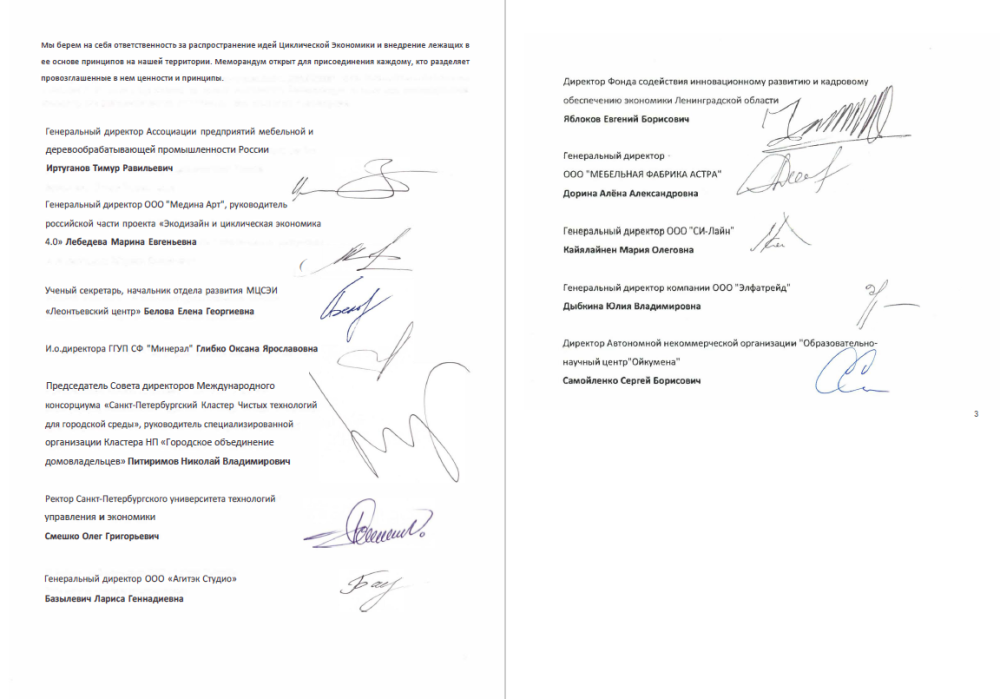
From 2011 until 2013, I was in charge of a sustainable development concept as part of a huge infrastructure project connected with a new Russian port in the Gulf of Finland. During that time, I decided that we have to sign a memorandum of understanding with all involved stakeholders. And we did it and got the support from regional authorities, from our deputies in St. Petersburg and Leningrad region, from NGOs and important large companies. It was a real success and so l decided to repeat this approach. It will help us to continue. Our next step will be a first common meeting where we decide how to combine the different activities and projects of all parties who signed, and how we can work together. But it is only one small step. We intend to have regular exchanges with the members of this memorandum to cooperate.
And we are growing: We’re planning a new round of signatures for the memorandum during the “Strategic Forum” where leaders from all regions of Russia come together for strategic planning in St. Petersburg. It is important that we have a special ceremony of signing as part of this strategic forum. We already agreed it with the organising committee. It is perfect timing because we have some more months to reach other actors and to raise awareness. And it will be great event to get public attention and recognition.
Interview: Lisa Marie Fiebig and Conrad Dorer

